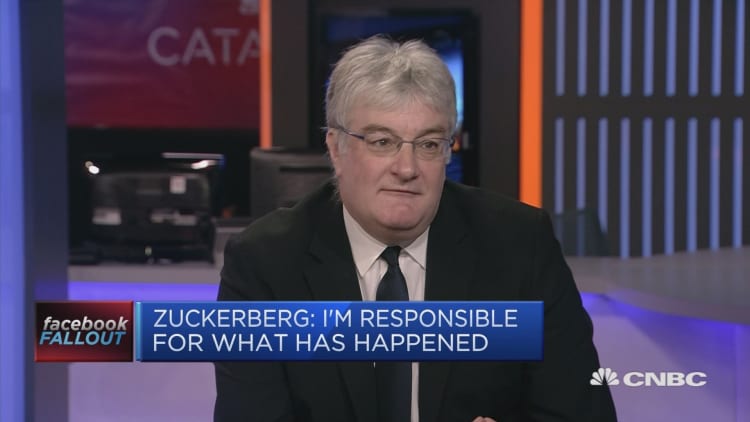Stock markets could see sharp falls before the end of year as valuations have hit disproportionate levels, one strategist told CNBC's "Squawk Box Europe" Thursday.
In the wake of the 2008 financial crisis, central banks around the world have pumped trillions of dollars into the global economy to boost lending and encourage growth. However, this massive market intervention has led to a sharp increase in stock prices — taking them to "epic bubble levels," according to Paul Gambles, the managing director at Thailand-based advisory firm MBMG Group.
"We had a policy response to the global financial crisis (and) at that point stocks were cheap and they had an enormous tailwind behind them in terms of fiscal support," he said. "This is quite a dangerous situation and it is creating a bubble, and that bubble has just got bigger and bigger and bigger … There isn't any doubt now (that) in valuation terms we're in epic bubble proportions, probably the biggest bubble of all time."
Gambles added that markets could be experiencing a moment similar to 2007, just before the historic market crash. "We now think that there are conditions out there that are prime for that bubble to actually be pricked," he added.
These conditions include unsynchronized global growth, tighter monetary policy and "chaos" surrounding U.S. politics with the administration's tougher stance on global trade, according to Gambles.
However, Gambles noted that there were a range of outcomes for markets that were "probably wider than it's ever been at any time in history." "We could have a good stock market year, we could have a 20, 30, 40 percent plus correction," he added.

Continued support from central banks has made investors more confident on the performance of stock markets over recent years. Looking at the , from the trough of March 2008 until now, the index has risen by around 287 percent. In Europe, the benchmark Stoxx 600 has risen 134 percent in the same period.
Speaking to CNBC Wednesday, Jeffrey Gundlach, founder of DoubleLine Capital who is also known as a "bond king," said that stocks will end the year in negative territory. He cited rising bond yields and a plunge in cryptocurrencies as evidence that equities will move lower.
The yield on the 10-year Treasury yield has been carefully watched by investors. The spike in the yield earlier this year led to a market correction on fears that inflation would be kicking in at a faster pace than markets were expecting. However, such concerns have eased in the last couple of weeks, as central banks confirmed a gradual increase in interest rates. Higher inflation and a faster pace of interest rate increases are usually harmful to stocks, as they impact companies' earnings.
But such negative views on stock prices are not shared by every analyst. A strategist at Goldman Sachs told CNBC Wednesday that it's unlikely that stocks will enter an interrupted period of falling prices.
"Without interest rates and inflation expectations really rising very much, it is difficult to see the triggers for a recession anytime soon," Peter Oppenheimer, chief global equity strategist and head of macro research at Goldman Sachs International, said.


